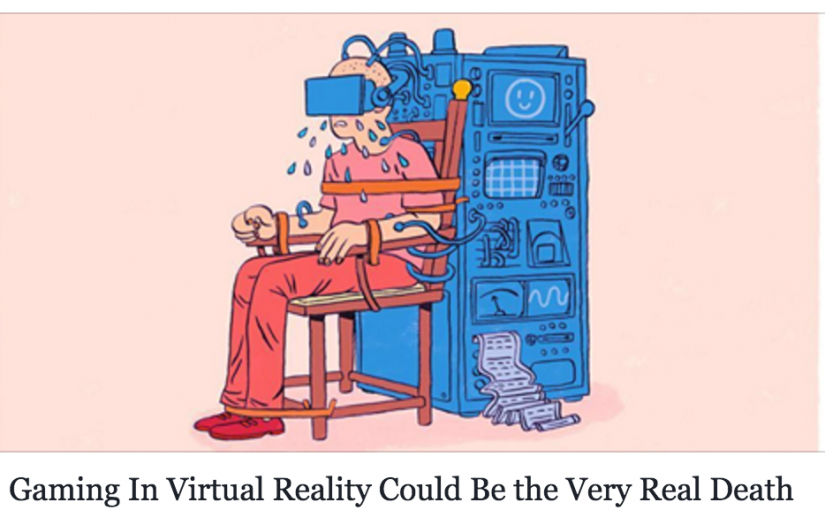Category: Social Media Deontology
-
Black Mirror – A television series
Reading Time: 2 minutesBlack Mirror – a television series Black Mirror is a television series that was broadcast by Channel 4 a few years ago and made available to Netflix audiences recently. The series explores a variety of topics and issues to do with technology from death to crime and existentialism. It also explores themes…
-
Post-fact Britain
Reading Time: 4 minutesI was in the graduating class of 2000 with 99 other students representing more than one hundred countries. As an individual I already have three nationalities and four identities. I am British, Italian, Polish and a foreigner living near Geneva, Switzerland. As a result of this mixture I said, when I was…
-
Quora and lateral thinking
Reading Time: 2 minutesRecently I saw the question “Why can’t I charge my mobile phone while riding my scooter?” on Quora so I decided to provide the answer that you see below. In my eyes my answer is legitimate. As an ingress player, as a scooter driver, and as someone who has done what I describe…
-

Facebook Disengagement
Reading Time: 2 minutesFacebook disengagement by those I know has become so serious that I have decided to take a break from the social network myself. For many years this was a network of people I knew and spent time with in person. It has school friends, uni friends, activity friends and social media friends.…
-
Social Media and The Human Return on Investment
Reading Time: 3 minutesSocial Media and the Human Return on Investment, because contrary to popular belief we use social networks to socialise, not to shop. As we grow older and more mature our close network of friends changes and evolves. We go from school friends to university friends and then to professional friends. In the…
-
Narcissism and the World Wide Web
Reading Time: 2 minutesAccording to a New York Times writer, Narcissism and the World Wide Web are increasing. “Narcissism is increasing…” If our egos are obese with amour-propre, social media can indeed serve up the empty emotional carbs we crave. Instagram and the like doesn’t create a narcissist, but studies suggest it acts as an…
-
Social Media and the Lizard brain
Reading Time: 3 minutesI wanted to write about Social Media and the Lizard brain. My experience of information technology and Social Media is that it is a great tool for people from different backgrounds to come together and have a calm and logical conversation. Some people believe that “we need a social media with heart…
-
The idiocy of the Hashtag
Reading Time: 7 minutesEvery day I am reminded of the Idiocy of the Hashtag. Twitter is a conversational medium where the more we converse the more addictive the social network becomes. Every single @ reply was a reaction to what we said or shared. Connections between users were strong and so the network effect took…
-
Vanity fair is wrong to label Zuck as the top disruptor
Reading Time: 2 minutesZuckerberg Tops Vanity Fair’s 2015 List of Disruptors Every successful social network first establishes a friendship network where a tight knit group of people interact with each other on a very frequent basis. In the case of facebook it was uni friends interacting with uni friends from the same campus. On twitter…
-
The Dumbing Down of mainstream media
Reading Time: 4 minutesRecently I have found mainstream anglo-saxon media much harder to tolerate. A few years ago I went to see 90 films in 9 months. I had no TV and the World Wide Web wasn’t quite as accessible then as it is today. For years I could watch BBC World from the moment…